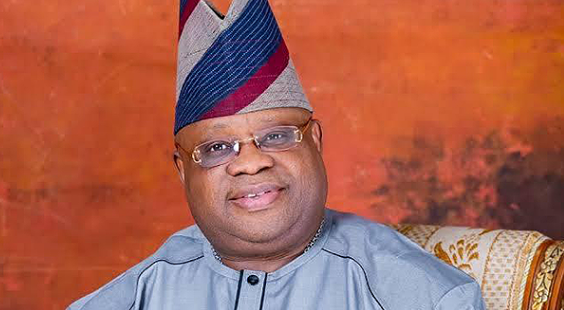US – The Director-General of the World Trade Organisation (WTO), Dr. Ngozi Okonjo-Iweala, yesterday, advised the United States to critically re-evaluate its stance on reciprocal tariffs, particularly as they impact the fragile economies of poor African nations.
This was as United States President, Donald Trump, announced yesterday, that he was involved in settling violent conflicts in Africa.
“Big news coming out of Africa, where I am also involved in settling violent wars and conflicts. I don’t know why so many of these events have fallen to me and my Administration, but they have, and we have done an unprecedented job in getting them SETTLED or, putting them in position for PEACE.
STAY TUNED!!!,” the US President wrote on his Truth Social, a social media platform.
The WTO boss, who made her remarks in an interview with journalists on the sidelines of the ongoing International Monetary Fund/World Bank Spring Meetings in Washington DC, also urged African countries to deepen self-reliance by boosting intra-African trade and do more to attract more domestic investment, stressing that the global aid landscape was shrinking fast.
Nigeria’s decline reflects mounting macroeconomic challenges, including foreign exchange volatility, persistent inflation, and sluggish economic diversification.
Trump had slammed reciprocal tariffs on all trading partners, including some African countries, claiming that the U.S. had suffered from unfair trading relations with most of its partners.
The measure had prompted varied responses and sparked retaliatory actions from other countries. It had also generated shock waves across the globe, leading to turmoil in financial markets across the world.
Commenting on the matter, Okonjo-Iweala called on the United States to waive or remove reciprocal tariffs on exports from Africa’s poorest countries, warning that the economic consequences could be devastating for small, vulnerable economies like Lesotho.
Citing Lesotho as a case in point, she explained: “Lesotho, that everybody is talking about, has 50 per cent reciprocal tariffs. It exports $200 million worth of textiles to the US, imports about $3 million worth of goods from the US, is so little.
“If those tariffs are implemented, it will lose almost half a percentage point of its GDP growth, which is huge for a poor country. It will lose a lot of its exports to the US, even though it might gain a little bit by exporting elsewhere.
“So the issue is, how can we avoid having such reciprocal tariffs on Lesotho? We are asking the US to look at least developed countries, the poorest, and to try to waive these reciprocal tariffs, to remove them, so that the poorest countries and Africa as a whole don’t have these tariffs.”
She also warned that similar situations exist across the continent, with some countries like Rwanda, facing 21 per cent tariffs, while their neighbours like Ghana face only 10 per cent
“Guess what? Ghana’s export is what? Cocoa. Almost a billion dollars’ worth to the US. So it’s going to disappear across the border if you have differential reciprocal tariffs,” she said.
While acknowledging that overall trade between Sub-Saharan Africa and the United States was relatively small, Okonjo-Iweala however, underscored that this reality presents both a challenge and an opportunity for Africa.
“Sub-Saharan Africa’s exports 6.5 per cent of Africa’s exports only go to the US, and 4.4 per cent of its imports come from the US. So the impact for the continent as a whole is not that bad,” she noted.
“However, it’s both good news and bad news. Good news is that it’s limited. Bad news as well we’re not trading that much, which is not a good thing.”
She stressed the need for African countries to turn inward and focus on boosting intra-African trade as a means of insulating their economies from external shocks.
“So, from the global environment, the message to Africa is: you have to rely more on self-reliance. We have to do more in Africa to rely on our resources. Now it’s very clear, aid is disappearing. Okay, there may be a little left, but it’s disappearing.
“We need investment. So when you need investment, you have to do so much more in terms of mobilising domestic resources to put infrastructure in place, removing bureaucratic barriers so investment can come in. And this is what we need to do. And we need to trade more,” she added.
She pointed out that while Africa’s contribution to global trade remains marginal at only three percent, the continent’s intra-regional trade stands at just 16–20 per cent an area with massive potential for growth.
By Damilola Adeleke | April 26, 2025
Discover more from DnewsInfo
Subscribe to get the latest posts sent to your email.




